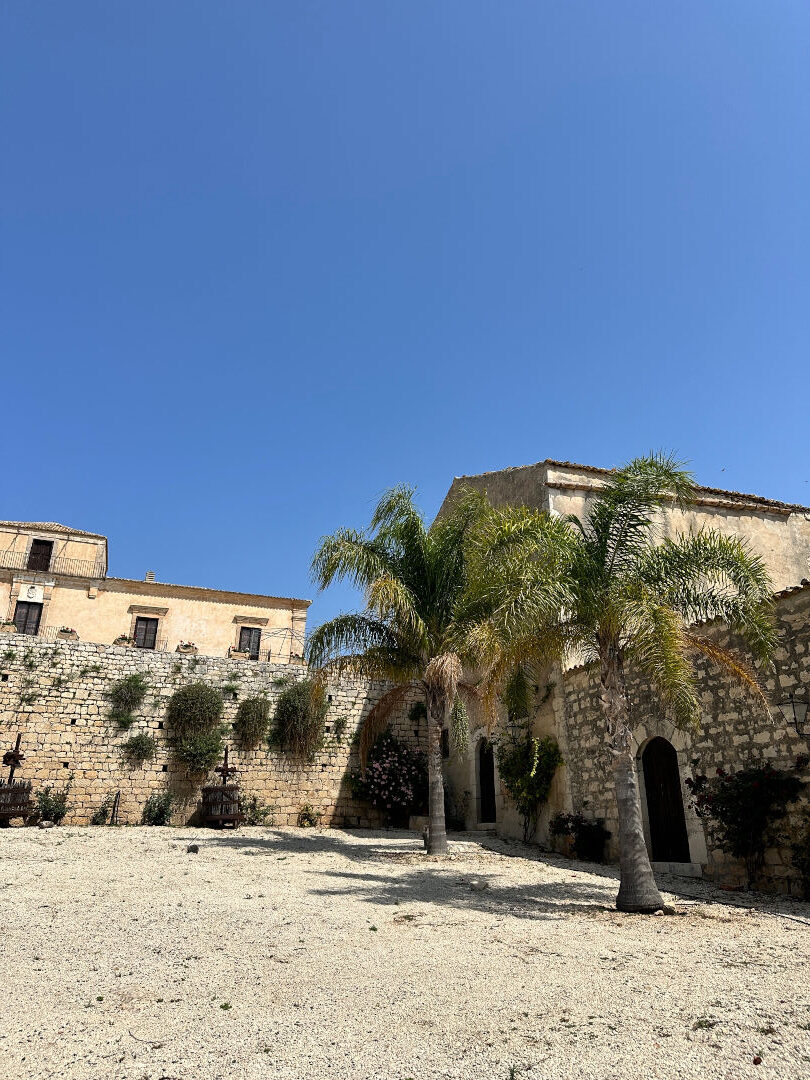
Azienda Agricola Curto, winemakers since 1670 from Ispica, Val di Noto, Sicily. Today, the legacy flourishes under the inspiring leadership of Francesca Curto, a Woman of Wine who embodies the soul of Sicily with hospitality, radiance, and endless energy.
With a vision focused on sustainable practices, Francesca nurtures the vines, ensuring they thrive even in challenging times, leaving a lasting imprint of her family’s legacy in every bottle.
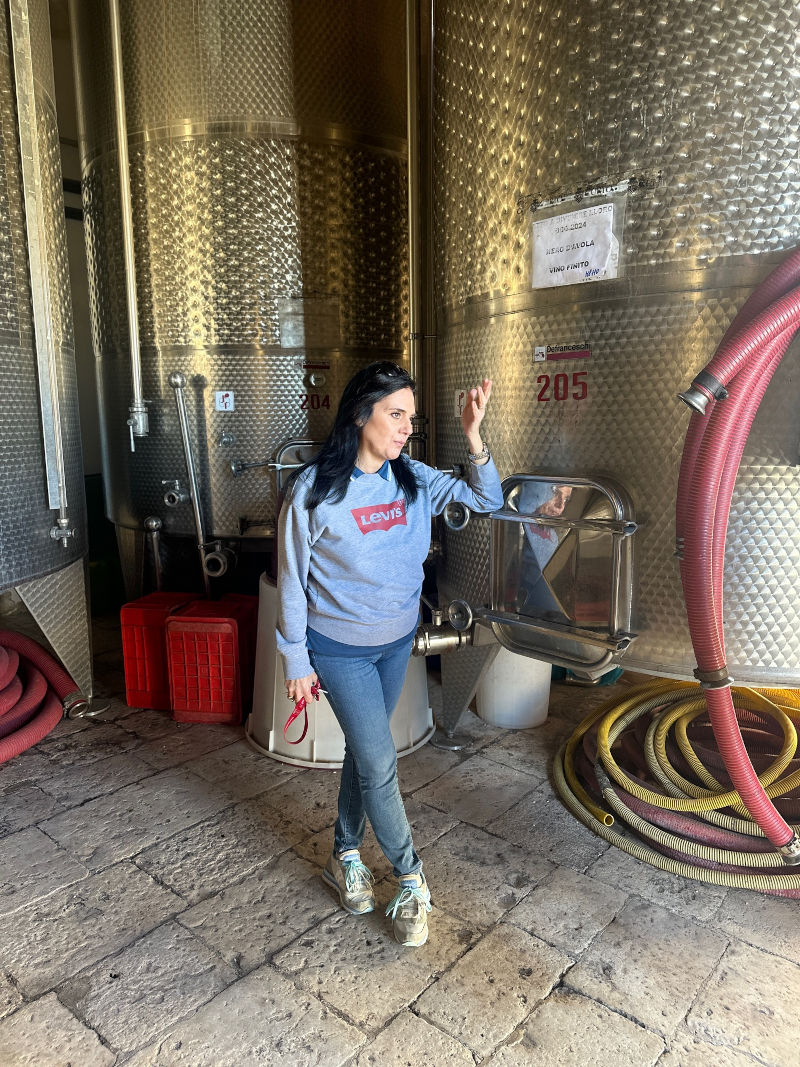
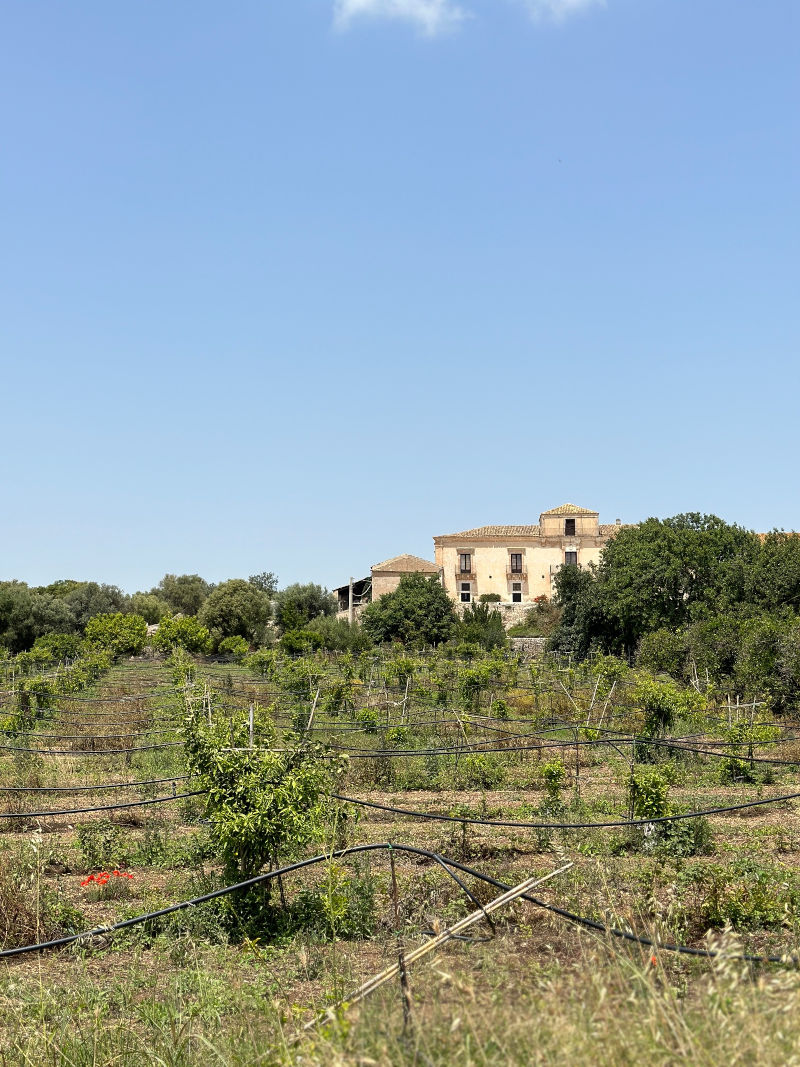
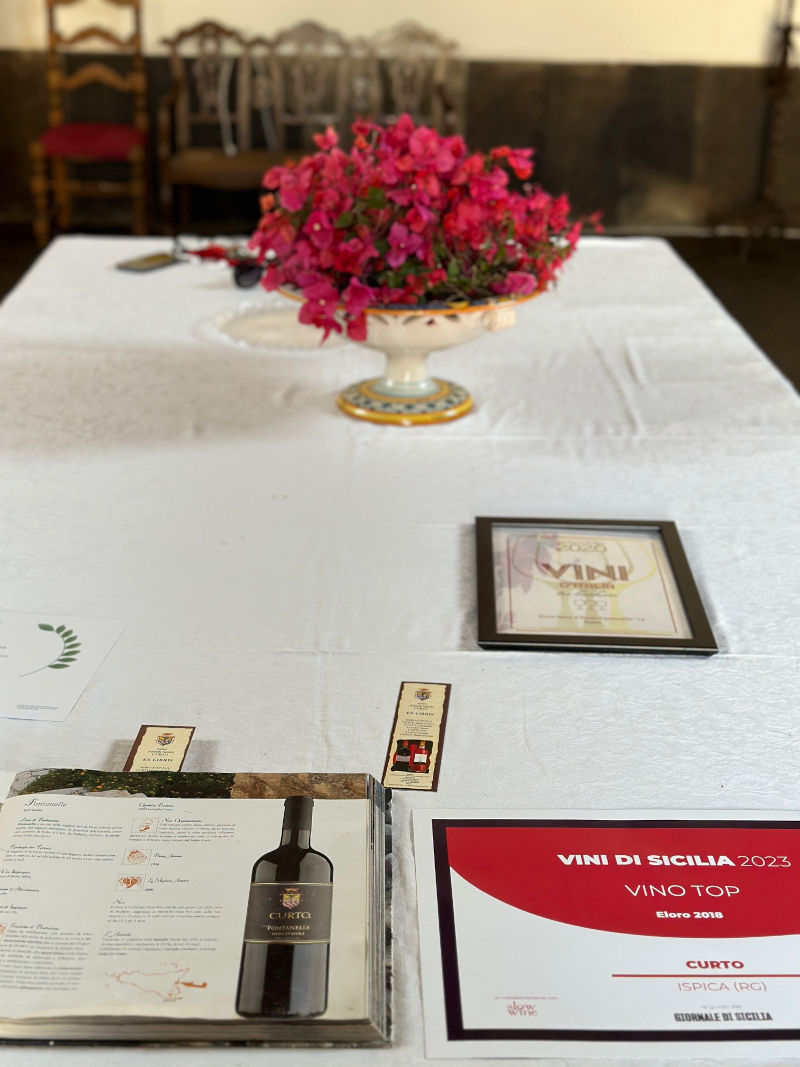

The Curto winery is located in the heart of Ispica, in southern Sicily, in a region steeped in history and culture, attracting travelers from all over the world with ancient villages and architectural treasures recognized as UNESCO World Heritage Sites. Among golden hills and timeless landscapes, stands Villa Sulla, an elegant 18th-century aristocratic mansion, now home to the winery.
The route to reach it is a journey into Sicilian agricultural tradition: you pass through an imposing entrance with majestic columns and follow a narrow road bordered by characteristic dry stone walls, surrounded by vineyards, citrus groves, olive groves, and carob trees. When you arrive in front of the solid and elegant structure, embraced by lush bougainvilleas and cascades of capers, you have the sensation of entering a movie scene, suspended between history and natural beauty, as if it were the set of a famous television series.
“I like to repeat that it does not take a winery to make a great Wine, but a territory. The Wine must reflect it. Then, you may like it or not but at least, after drinking it, you have a memory of it.” Francesca Curto
Today Francesca leads the winery, following in her father’s footsteps. She had training experiences in France and by the time she was 28, she was back in Sicilian, working in the family winery. Her vision is deeply rooted in modernity, where the main challenge is to wisely govern climate change, managing vineyards and water during water shortages for sustainable viticulture that keeps the vineyards alive and healthy and allows them to enhance the elegance, bond with the land and lasting imprint of her wines.
Francesca welcomes us with a wide smile and, with her lively energy, guides us through the rooms dedicated to the production and aging of the wines. We move from the steel tanks, which allow strict temperature control, to the medium-toasted French oak barrels, to the efficient bottling line, and to the wine tasting at the tasting room, which evokes the atmosphere of a Bourbon era, suspended in time.
The family, of ancient French noble origins, still owns 200 hectares, about 20 of which are devoted to vineyard cultivation divided between Sicilian native varieties such as Nero d’Avola, and Insolia. Plus Syrah, an international grape has found a perfect crib in this arid area.
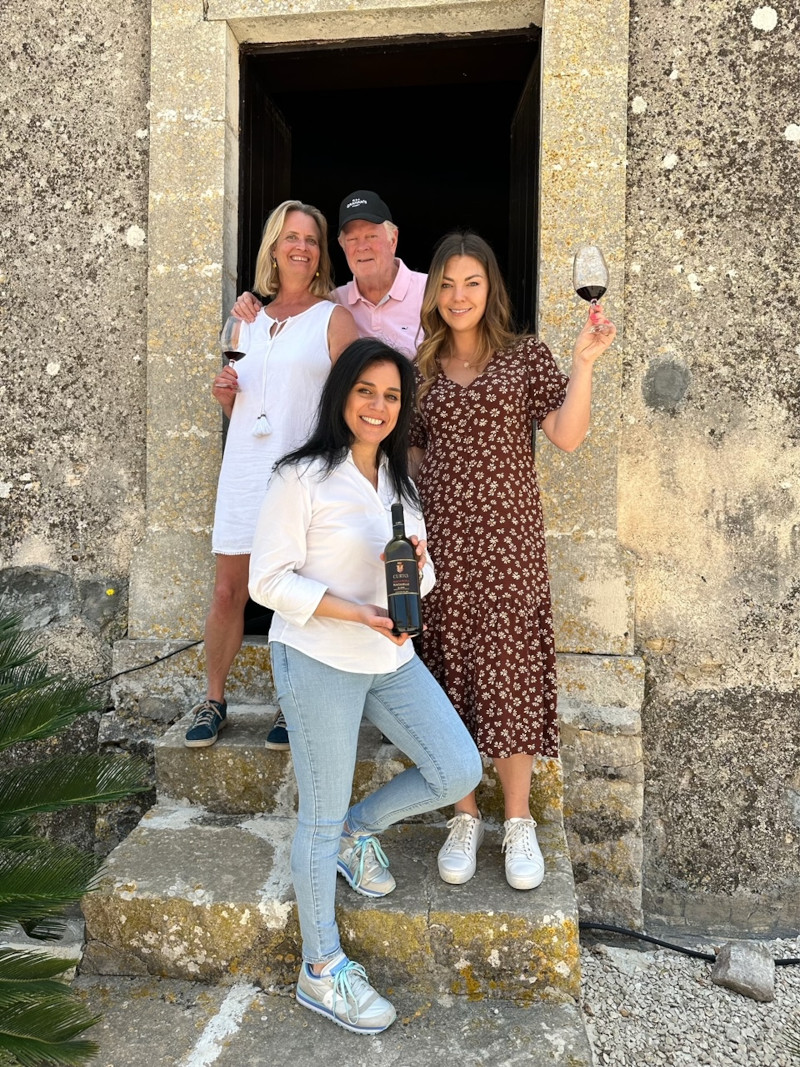
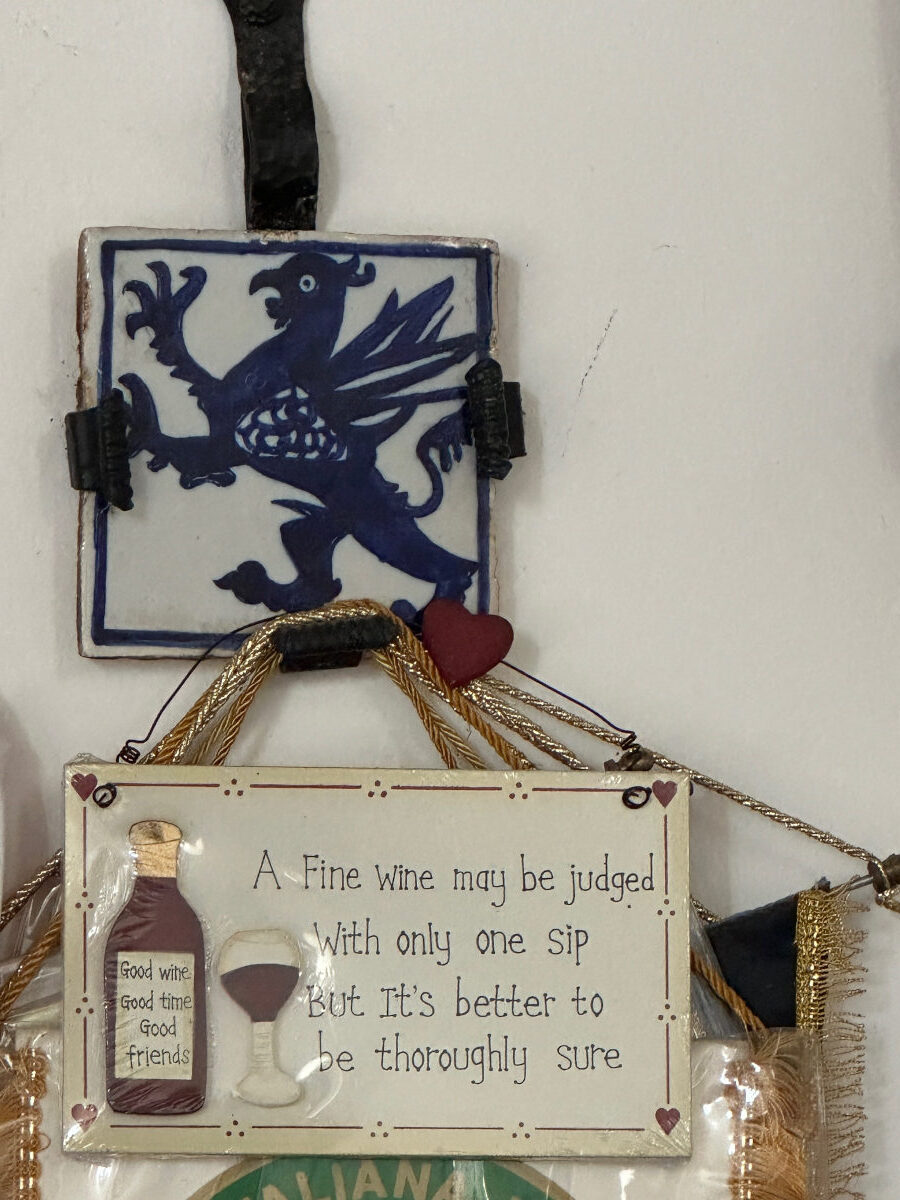
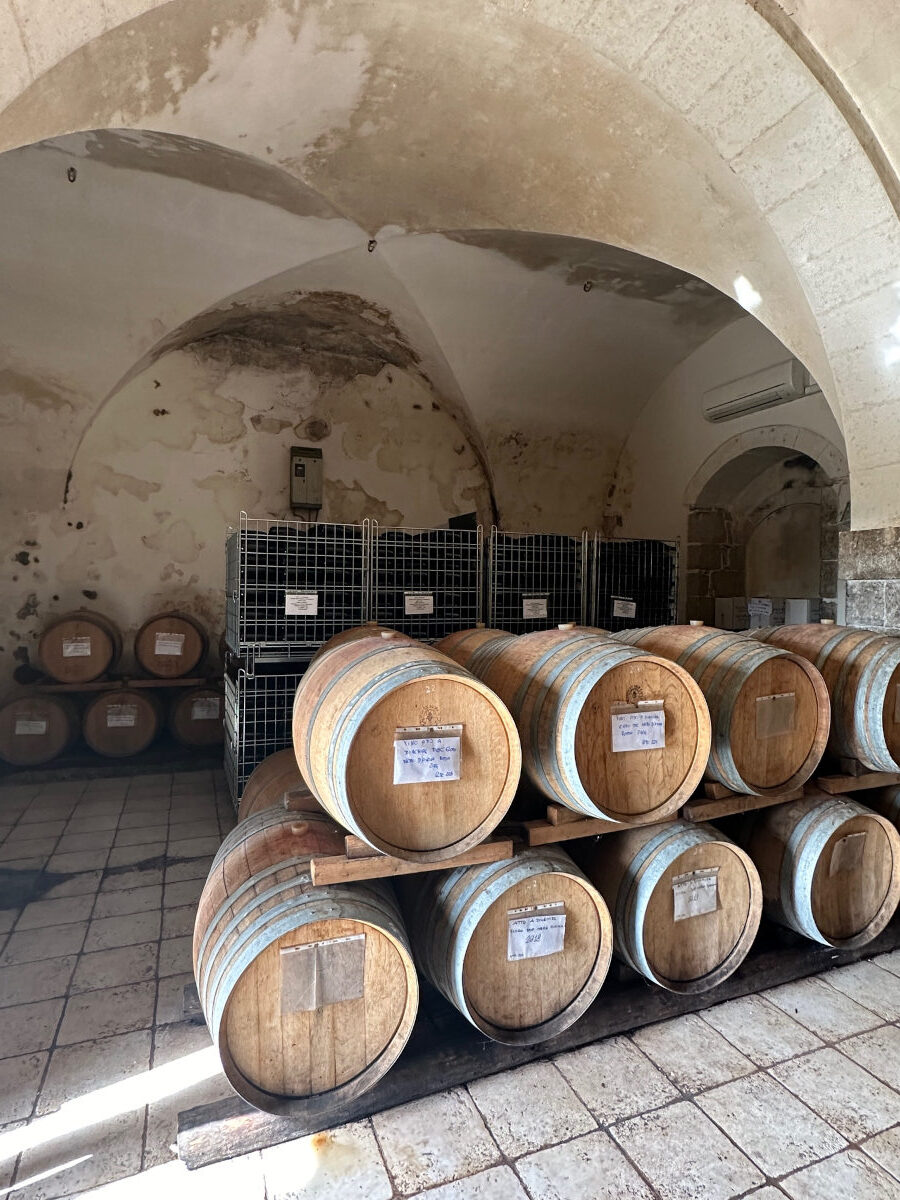
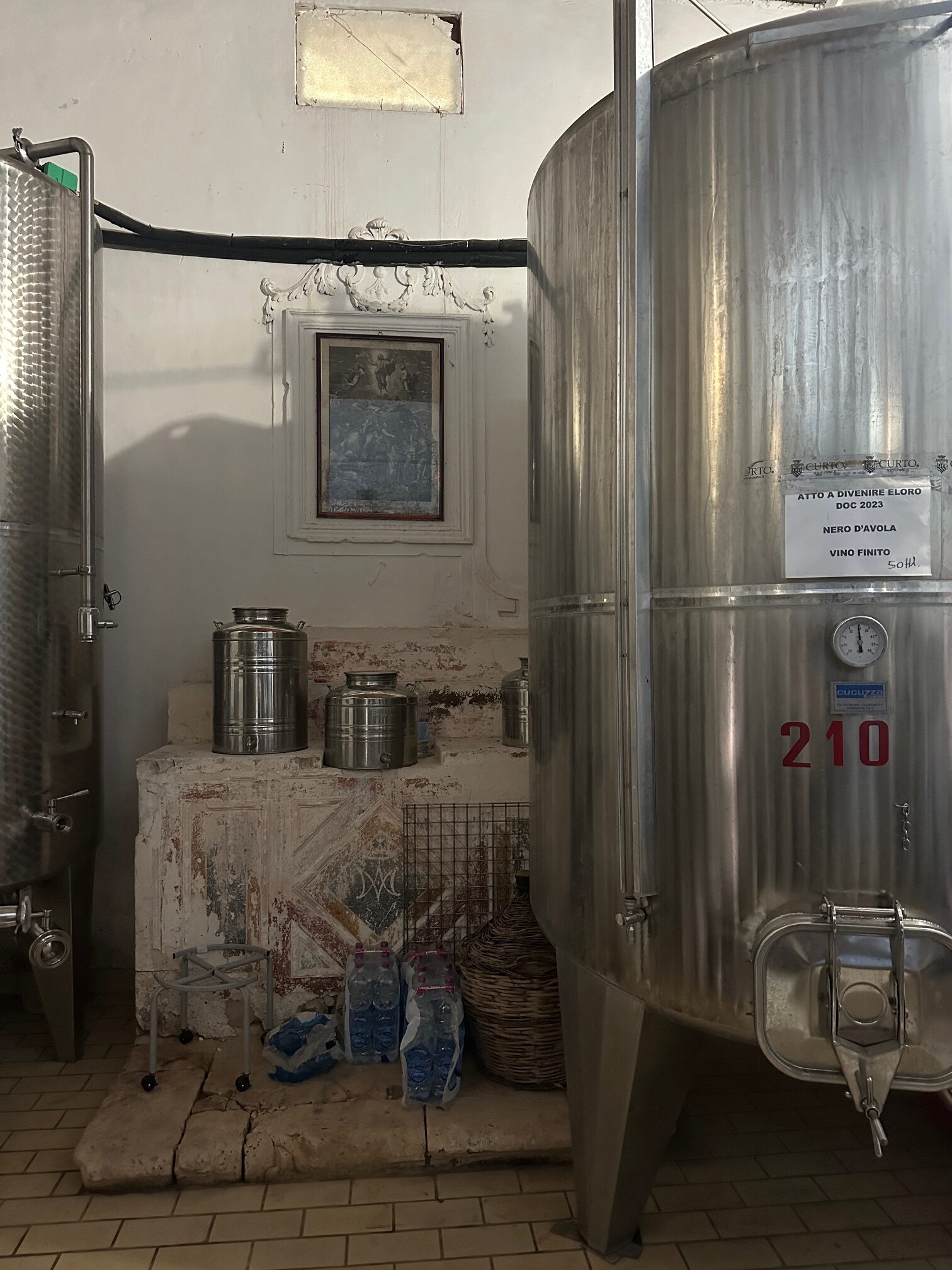
The vineyards, nestled in the renowned Pachino zone—the most prized region for cultivating this variety—enjoy a quintessentially Mediterranean coastal climate: warm to hot temperatures, scarce rainfall primarily limited to the winter months, and a steady, gentle breeze rolling in from the sea. This landscape is framed by the Iblei Mountains to the north, a dramatic expanse of rugged high plateaus that gently descend towards the Mediterranean coast. The predominantly calcareous soil combines the distinctive limestone and calcareous tufo of Val di Noto, enriched by calcareous clays. Most of the vines here are old, gnarled bush vines, pruned low to the ground, yielding no more than two tons of grapes per acre. A smaller section of the vineyards, trained along wires, produces a slightly higher yield of about three tons per acre.
Wine tasting focused mostly on various expressions of Nero d’Avola
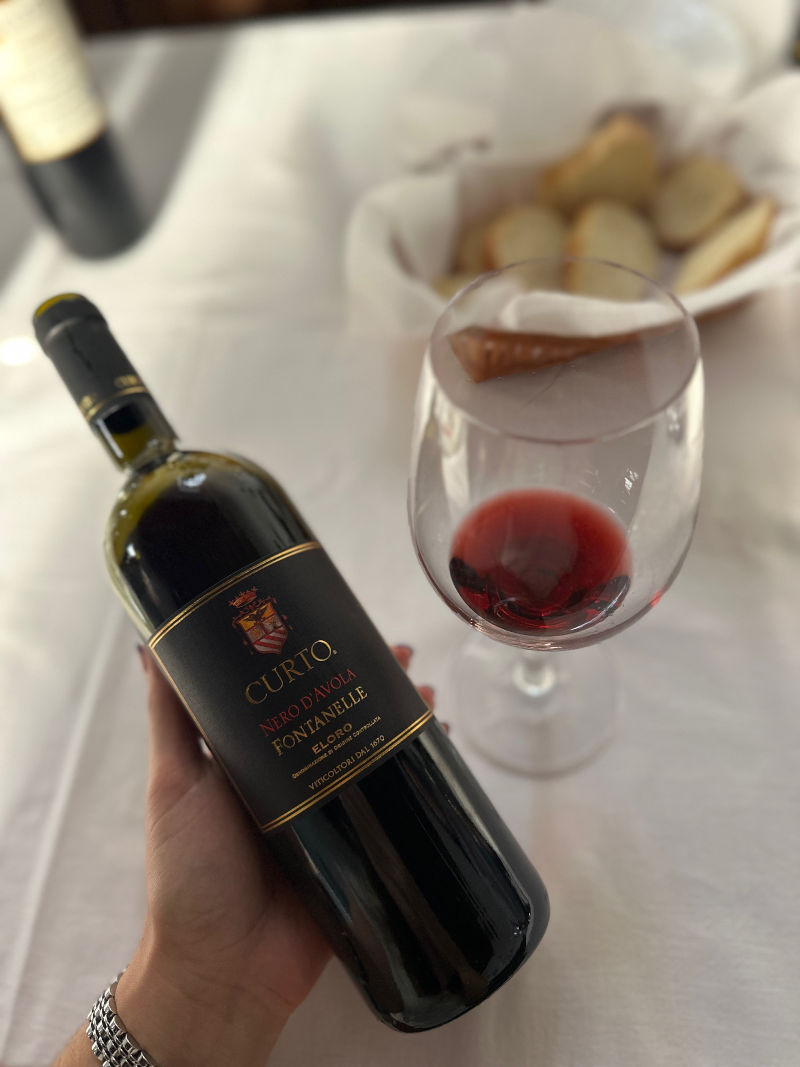
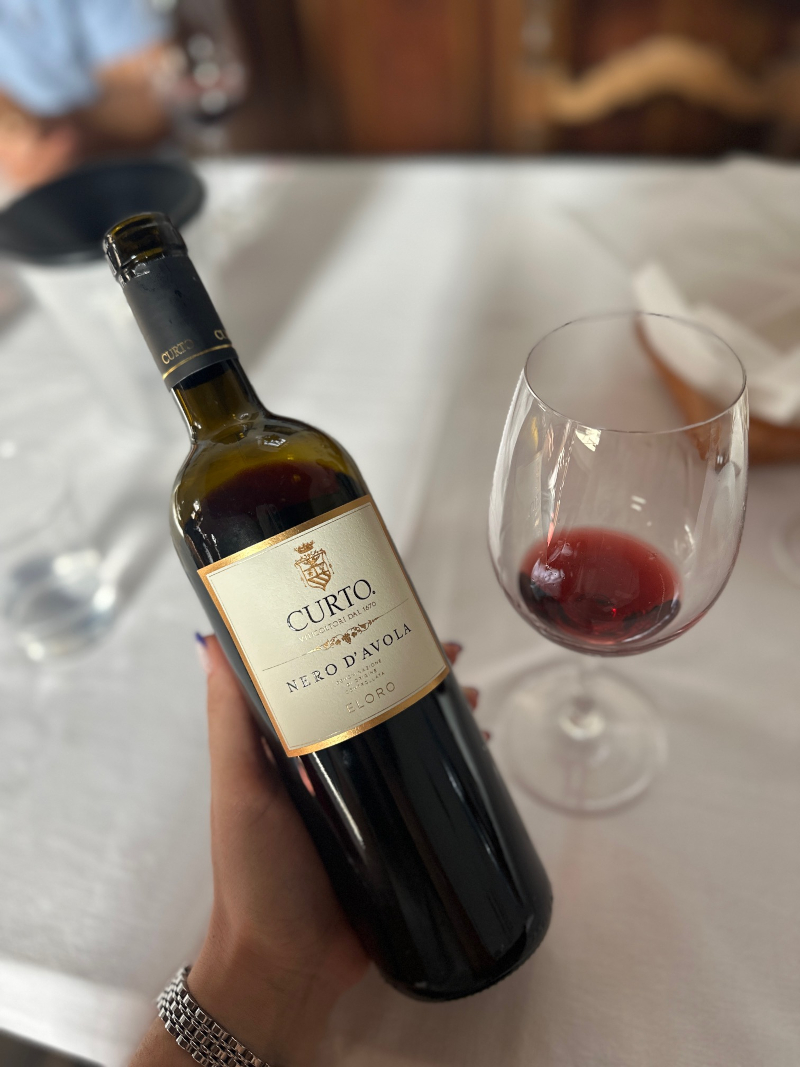
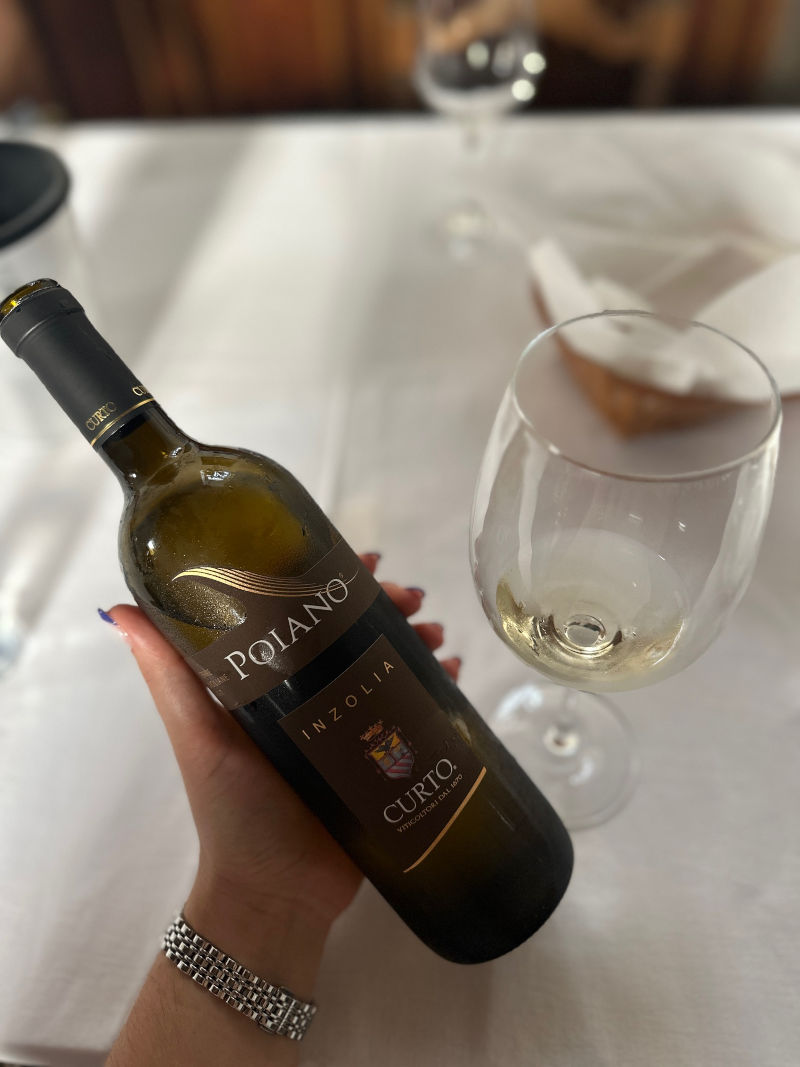
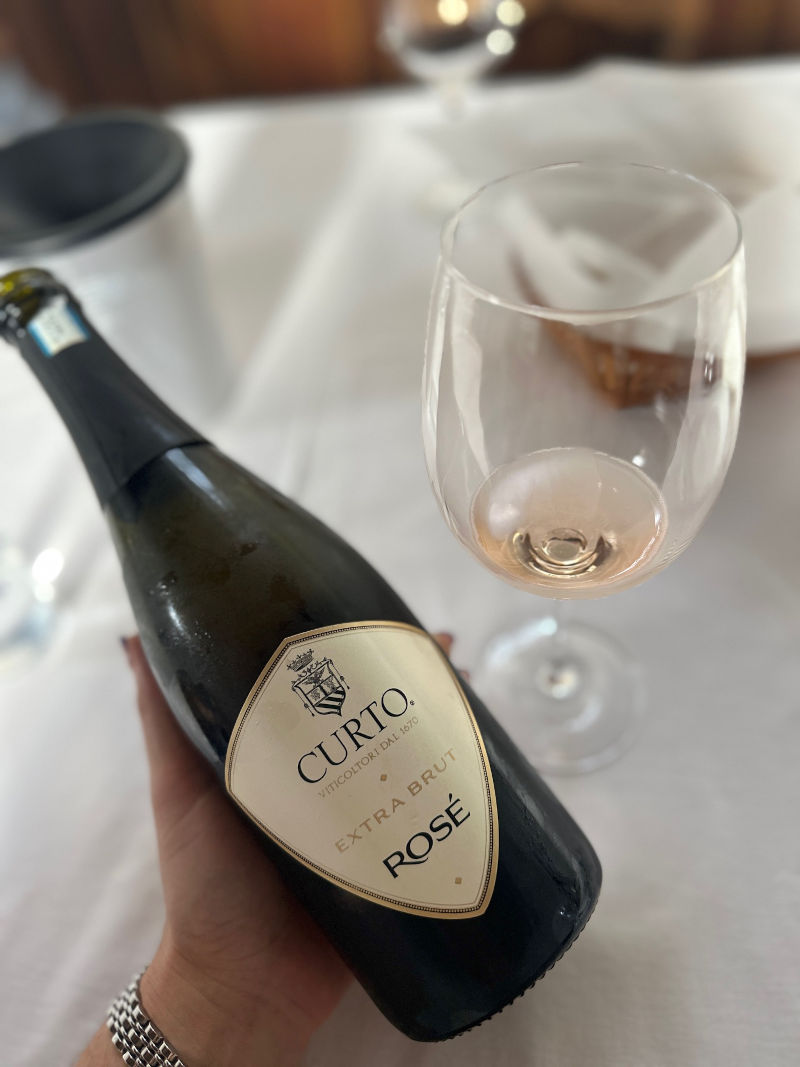
Nero D’Avola Fontanelle 2016 is produced from 50-year-old vines and impresses with its elegance and refinement. Indeed, it greets with a strong impact of Mediterranean scrub and sun-dried tomato, a feeling of underbrush and sweet spices, then unravels in the mouth the cherry sauce, carob, red plums, and a light but irresistible bitter touch from rhubarb. Ready to drink now but with an excellent growth perspective.
The Nero D’Avola Eloro 2020 is an easier-drinking but still nuanced version of it. Its delightful freshness lets the fruit and spices express themselves more fully, allowing us to rediscover the wild explosiveness of sour cherry and carob, framed by dark chocolate, with more acidity present. It can mature for several years, gaining complexity.
Poiano 2023, from pure Insolia grapes, bursts into honeysuckle on the nose, while the palate points to citrus, grapefruit, and then a cantaloupe, with intriguing sulfur notes just pronounced.
Spumante Metodo Classico Extra Brut Rosé 2021 from Nero d’Avola grapes, aged for 24 months on lees, disgorgement 2024. Surprising sulfur note on the nose, afterward peach, grapefruit, citrus groves, and a touch of sage and white mulberry. Savory with very persistent bubbly. Tiny residual sugar balances out the bursting acidity of the wine.

